JEAN R. FREEDMAN
Publication of this book was supported by grants from the Manfred Bukofzer Endowment of the American Musicological Society, funded in part by the National Endowment for the Humanities and the Andrew W. Mellon Foundation, and from the L. J. and Mary C. Skaggs Folklore Fund.
Permissions to reproduce copyrighted materials appear on pages .
Preface
I first met Peggy Seeger on an autumn evening in London in 1979. The setting was the Singers Club, a folk club that Peggy and her husband, Ewan MacColl, had begun in the early 1960s. I was in London studying theater through that most American of adventures: the junior year abroad. Having grown up in a much smaller city, I was entranced by the cultural offerings that only a major metropolis can afford. But on that October evening, I was still a newcomer and a stranger, a long way from home and bemused by cultural differences I had never anticipated: I didn't know my shoe size or the proper way to buy vegetables; the cars were unfamiliar and drove on the wrong side of the street; and I needed a new vocabulary for ordinary thingslift, aubergine, petrol, chemist's shop, surgical spirit. I had never seen Peggy before, but her accent was familiar, and she sang the songs I knew: The Single Girl and Jenny Jenkins. After the performance, I introduced myself and said, Thank you for taking me home.
Throughout that long and extraordinary year, the Singers Club became an essential part of my routine. In a small room above a Bloomsbury pub, I could hear some of Britain's finest folk musicians for a price of .50, and in the middle of the evening, anyone who wanted could sing a song from the floor. I particularly looked forward to the nights when Ewan and Peggy sang. I loved their unique combination of old and new music: eighteenth-century ballads and nineteenth-century sea shanties mixed with musical polemics about apartheid or Margaret Thatcher. I loved their combination of intellectual rigor, political clarity, and musical skill. I joined the committee that ran the Singers Club, and at my first committee meeting, Ewan began telling me of his days in the theater. When I indicated my interest in hearing more, Ewan and Peggy invited me to dinner at their home, where we ate, talked, and sang long into the night. They encouraged me to sing from the floor at the Singers Club and gave me useful suggestions and warm praise when I did so.
After I returned home, we exchanged letters and postcards and saw each other occasionally, when I visited England or when they were on tour in the United States. But as time passed, our connection grew more tenuous. After Ewan died in 1989, Peggy and I maintained only occasional and sporadic contact. For several years, we lost touch entirely. But I never forgot her music or the keen intelligence behind it.
Ewan and Peggy's influence on my life was perhaps greater than they knew. After my year in London, I returned to the United States and completed my degree in theater. Then I moved to New York, where I found myself spending more and more time with folk music: singing, writing songs, helping to run a small folk club in Greenwich Village. In 1988, I began graduate school in folklore and ethnomusicology at Indiana University. I wrote my MA thesis on Scottish ballads and dedicated it to Ewan's memory. My PhD dissertation was a study of London during World War II; in particular, it examined the interplay between culture and politics. Once again, I spent a year in London, but the Singers Club no longer existed, and the folk music communitystill creative and vibrantwas very different from the one I had known.
Time passes. In the 1990s, a friend from the New York City folk revival put Peggy and me in contact via email. A friend from graduate school asked me to review a book about Peggy's mother, Ruth Crawford Seeger, for the Journal of American Folklore. I had questions about the book and emailed them to Peggy; she preferred to discuss the matter by telephone. I spoke to her on a cold Sunday afternoon in winter; half a world away in New Zealand, Peggy replied from a warm Monday morning in summer. In the course of our conversation, she asked if I knew anyone who was interested in writing her biography. I suggested myself. Six months later, we saw each other for the first time in years when she visited my home in Montgomery County, Maryland, only a few miles from where she grew up. Our work as biographer and subject had begun.
For the next eight years, I interviewed her, pored through her papers, visited archives, and spoke to her family, friends, and acquaintances. Telling the life story of another is a fearsome responsibility, and this book would not have been possible without Peggy's unstinting help and generosity. She answered all my questions completely and with candor, allowed me access to her private papers, and provided contact information for important people in her life. She read every word I wrote, made comments, and corrected errors of fact, but she never told me what to write or tried to control my telling of her story. When we disagreed, she would graciously say, This is your book. To supply a subjective telling of her life, she began to write a memoir, which will serve as a complement to this book.
For the past eight years, it has been my honor and my pleasure to immerse myself in the music of a gifted, creative, and innovative artist. Peggy Seeger has been a major figure in the Anglo-American folk music revival for more than sixty years, but she is less well known than some members of her extraordinary family. I hope that, through this biography, readers will come to know a remarkable artist and to appreciate the music that she has created.
Acknowledgments
My first thanks go to Peggy Seeger herself. No biographer could have had a more cooperative, generous, and honest subject. She gave me access to a myriad of private papers, allowed me to tape-record her memories, fed and housed me during research trips, and entrusted me with the great responsibility of telling her life story. Her warmth, intelligence, and sincerity made her a pleasure to work with, and I am proud to call her my friend.
Peggy's family, friends, and acquaintances have likewise been generous with their time. I would like to thank Frankie Armstrong, Jay Ball, Bob Blair, Elias Bouquillon, Guy and Candie Carawan, Jim Carroll, Shirley Collins, Peter Cox, Sonya Cramer, Lin Frothingham Folsom, Kerry Harvey-Piper, Joe Hickerson, Stan Kelly-Bootle, Sandra Kerr, Calum MacColl, Kitty MacColl, Neill MacColl, Jean Newlove (MacColl), Pat Mackenzie, Jim McKiernan, Barbara Seeger Miserantino, Lorraine Murphy, Sheelagh Neuling, Barry Olivier, Noel Osheroff, Brian Pearson, Ruth Perry, Annette Dapp Poston, Nina Powell Scheider, Irene Pyper-Scott, Tony Saletan, Chris Arley Seeger, Jeremy Seeger, John Seeger, Kate Seeger, Naomi S. Seeger, Pete Seeger, Tinya Seeger, Alexia Smith, Judith Tick, Maurice Van de Putte, and Clark Weissman. Sadly, Mike Seeger died before I had the opportunity to interview him, but I will always be grateful for his warm interest in this project.

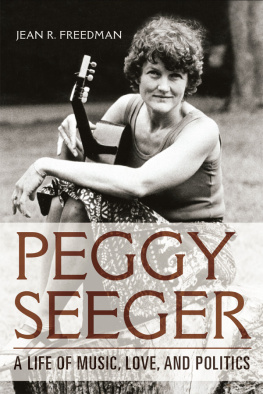
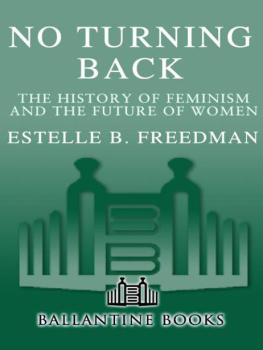
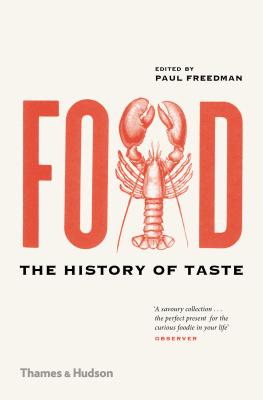
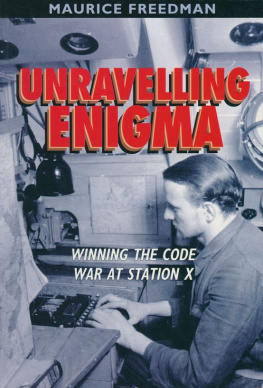
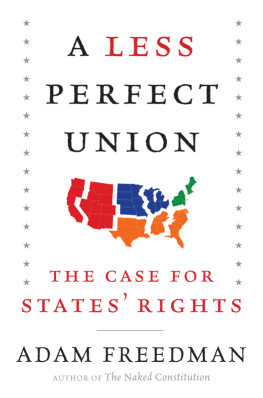
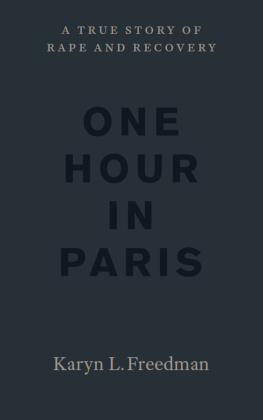
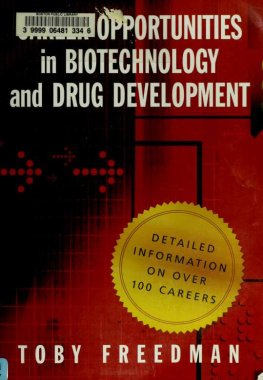

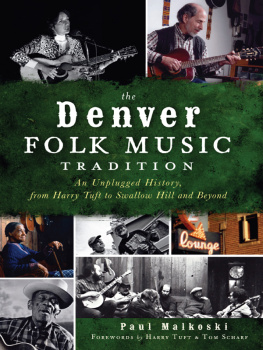
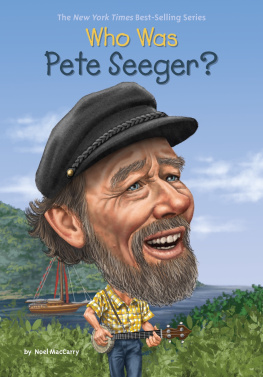
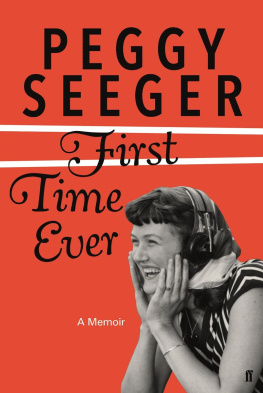
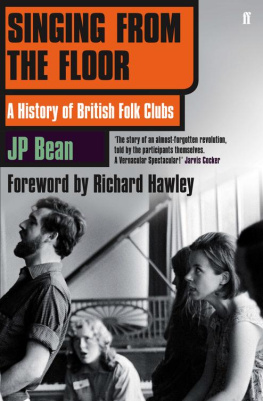

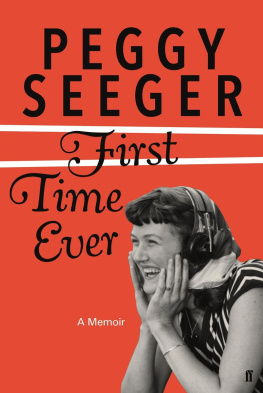
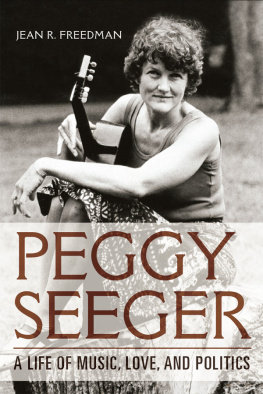
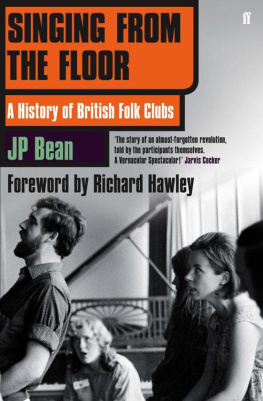


 This book is printed on acid-free paper.
This book is printed on acid-free paper.